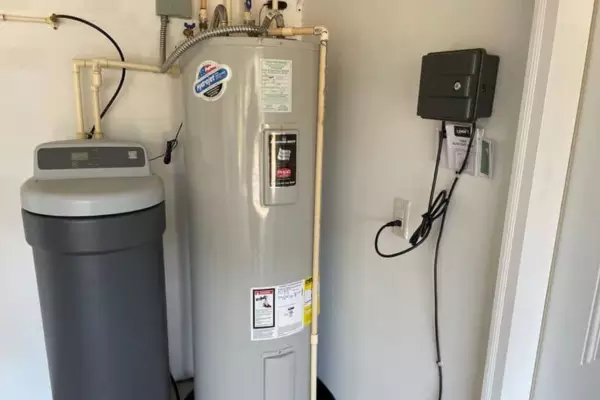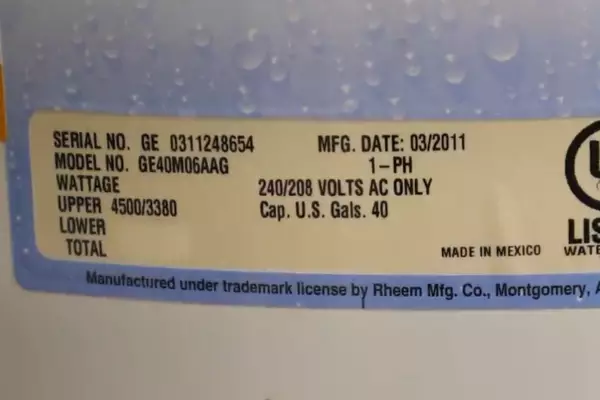Water heaters are essential appliances that make our everyday lives more comfortable, especially in colder climates. They provide hot water for cooking, cleaning, and bathing. However, they can also pose potential risks if not maintained properly.
Turning off a water heater doesn’t immediately signal danger. On the contrary, it can prevent unnecessary energy consumption. Yet, an improperly managed heater, whether on or off, can lead to dire outcomes, including possible explosions.
Issues with water heaters, including explosions, can occur due to a variety of reasons. High pressure, faulty equipment, or lack of routine maintenance can create a hazardous situation, posing risks to both life and property.
Contents
Basics of Water Heaters
Working Principle
Water heaters operate on a simple mechanism. They heat water through a heat source and store it until needed. The unit automatically maintains the water temperature within a preset range.
Components and Functions
Critical components of a water heater include a tank, thermostat, heating element, and a pressure relief valve. The thermostat controls the temperature, the heating element heats the water, and the pressure relief valve ensures safety by releasing excess pressure.

Exploding Water Heaters: Reality or Myth?
Water heater explosions are not mere hearsay; they have occurred in the past, albeit rarely. Such incidents usually arise due to an unsafe buildup of pressure inside the unit that isn’t correctly managed by safety devices. Let’s explore this further.
Instances of Water Heater Explosions
The rare instances of water heater explosions often make the news due to their severity and the dramatic impact they can have on homes and businesses.
These explosions can cause significant property damage and in worst cases, can lead to injury or loss of life. It’s important to note that such events usually result from a perfect storm of neglected maintenance, faulty parts, and a lack of safety measures.
Safety Mechanisms in Place
To prevent such accidents, modern water heaters are equipped with several safety devices. The most important one is the pressure relief valve, also known as the T&P valve (Temperature and Pressure).
This valve is designed to automatically release water in case the pressure or temperature inside the tank exceeds safe levels, thus averting a potential explosion. Other safety features may include a thermostat with an automatic shut-off function, which deactivates the heating element if the temperature gets too high.
Impact of Turning Off Water Heaters
Turned off or not, the status of a water heater alone doesn’t immediately cause or prevent a possible explosion. However, turning off a water heater can impact its performance and functionality.
Short-Term Effects
In the short term, turning off a water heater can help save energy, especially when you’re away from home for extended periods. However, it also means that hot water won’t be immediately available when needed, as the heater will require time to warm up the water again.
Furthermore, turning off a gas water heater might involve relighting the pilot light, which can be inconvenient or difficult for some people.
Long-Term Consequences
Repeatedly switching a water heater on and off can lead to wear and tear on the thermostat and other components, potentially causing malfunctions over time. For tank-based heaters, there’s also the risk of the tank corroding due to sitting water. In areas with hard water, mineral buildup can be more rapid if the water sits for too long in the tank.

Warning Signs of Potential Explosion
A water heater may exhibit several warning signs before reaching a point where an explosion could occur. Recognizing these signs early can prevent a potential disaster.
Excessive Heat or Noise
One of the most noticeable signs of a potential problem with your water heater is an increase in noise or heat levels. If your heater is making unusual sounds, such as popping, cracking, or rumbling, it’s likely due to sediment buildup at the bottom of the tank.
This buildup can cause the water heater to work harder, leading to overheating and excess pressure. Similarly, if the outside of the tank or the hot water lines feeding into your house become too hot to touch, this could signal an issue with the thermostat or the pressure relief valve.
Leaking and Rusting
Leaks are another sign that your water heater might be having problems. This can occur due to a faulty pressure relief valve, a corroded tank, or loose plumbing connections. In the case of a faulty relief valve, it could mean that the valve is not properly releasing excess pressure, which could lead to an explosion.
If you notice rust on your tank or in your hot water, this could signal internal corrosion, which can weaken the tank and make it more susceptible to rupturing under pressure.
Water Discoloration
Discolored or murky water can indicate rusting inside the tank or a high concentration of mineral deposits. Either of these issues can lead to overheating and excessive pressure buildup. If your hot water has a strange smell or tastes metallic, these could also be signs of potential problems and should not be ignored.
Factors That Can Cause an Explosion
Certain conditions and malfunctions within a water heater can contribute to a possible explosion. It’s crucial to understand these to ensure timely interventions and maintenance.
Faulty Pressure Relief Valve
The pressure relief valve is an essential safety feature of any water heater. Its role is to release excess pressure within the tank, thus preventing an explosion. If this valve becomes blocked or malfunctions, the pressure can continue to build unchecked, increasing the risk of explosion.

High Water Temperature
A thermostat set too high can cause the water to overheat, which in turn leads to excessive steam and pressure buildup. It’s recommended to keep the water temperature at around 120 degrees Fahrenheit to ensure comfort and safety.
Sediment Buildup
Over time, minerals in the water, particularly in hard water areas, can settle at the bottom of the tank, forming a layer of sediment. This layer can insulate the water from the heater, forcing the appliance to work harder and leading to overheating. The trapped heat can turn the water into steam, increasing pressure to dangerous levels.
Preventive Measures for Water Heater Explosions
Proper maintenance and care can significantly reduce the risk of a water heater explosion. Here are some preventive measures to consider.
Regular Maintenance
Regular maintenance can help identify and rectify potential issues early. This includes checking for leaks, flushing the tank annually to remove sediment, inspecting the pressure relief valve to ensure it’s functioning correctly, and keeping the thermostat at a safe temperature.
Professional Inspection
Annual inspections by a certified professional can uncover hidden problems and confirm the heater’s safety mechanisms are functioning as intended. They can test the pressure relief valve, inspect the tank and heating element, and adjust the thermostat if needed.
Safety Practices at Home
Follow safe practices at home, such as avoiding setting the water temperature too high, ensuring proper ventilation for your water heater to prevent carbon monoxide buildup, and taking immediate action when you notice warning signs.
What To Do If Signs Appear
If you notice any warning signs of a possible explosion, take immediate action to prevent a potential disaster.
Emergency Measures
First, turn off the water heater and disconnect it from the power source. If it’s a gas water heater, you should also turn off the gas supply. Never attempt to release the pressure yourself, as the water and steam can be extremely hot and may cause injury.
Contacting Professionals
Always call in a professional to inspect and fix the issues. Working on a water heater involves certain risks, and it’s always safer and more efficient to let trained professionals handle the job.
Choosing Safer Water Heater Options
When it’s time to replace your water heater, consider models with enhanced safety features and energy efficiency.
Advanced Safety Features
Some newer models come equipped with advanced safety features, such as digital temperature displays for easy monitoring, automatic shut-off systems in case of overheating or pressure buildup, and leak detection sensors.
Energy-Efficient Models
Energy-efficient water heaters not only help reduce your utility bills but also tend to have better safety features. Tankless water heaters, for example, don’t store water and therefore eliminate many of the risks associated with tank models.
Frequently Asked Questions
Can a turned off water heater explode?
A turned off water heater can explode if it has underlying issues like a blocked pressure relief valve or extensive internal corrosion.
What should I do if my water heater is making a rumbling noise?
A rumbling noise often indicates sediment buildup. You should call a professional to inspect and possibly flush your heater.
How often should a water heater be replaced?
On average, water heaters should be replaced every 10-15 years. However, regular maintenance can extend their lifespan.
Conclusion
Water heaters, while incredibly convenient, also carry certain risks. Careful use and regular maintenance can prevent these risks, ensuring the safe operation of these appliances.
Despite the fear associated with the possibility of explosions, they are relatively rare occurrences. Most modern heaters come with safety features designed to prevent such catastrophes.
Lastly, while a turned-off water heater can potentially explode, this largely depends on its condition and maintenance. Therefore, regular checks, appropriate usage, and professional inspections remain crucial in ensuring our safety and the longevity of the appliance.

